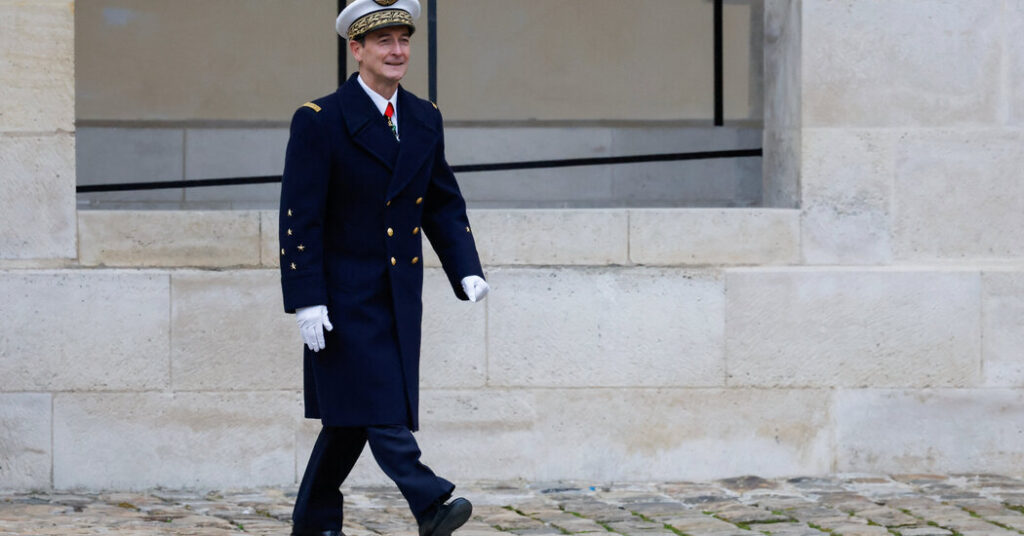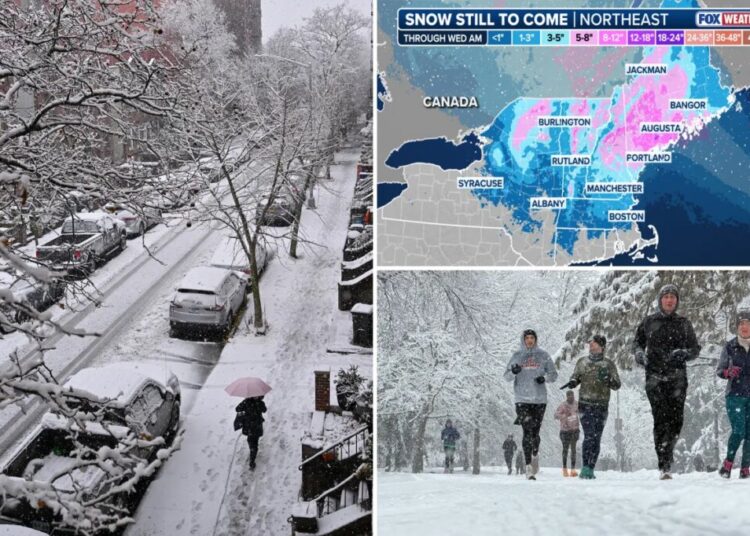France, whose relations with Russia are at a low point, has embarked on a concerted effort to convince its citizens that they must be ready for war. But a warning from the new French Army chief that the country must accept the possible loss of its children has touched a raw nerve.
The army chief, Gen. Fabien Mandon, who took over as chief of staff in September, told mayors gathered in Paris from across France last week that they must become the messengers of a new French resolve on an unstable European continent.
What is needed, he said, is “the spirit that accepts that we will have to suffer to protect what we are.” If France “wavers because we are not ready to accept losing our children,” then “we are, indeed, at risk,” he told the mayors, evoking the growing threat from Russia since its full-scale invasion of Ukraine in 2022.
His words were too blunt for some.
“Are 51,000 monuments to our war dead in our communities not enough?” asked Fabien Roussel, the leader of the Communist Party and mayor of Saint-Amand-les-Eaux, who attended the gathering. “Yes to national defense, no to warmongering.”
The furor has erupted as President Emmanuel Macron is widely expected to present a plan for paid, voluntary military service to supplement its standing army, during a visit on Thursday to the 27th Mountain Infantry Brigade in Varces, in southeastern France. The program would be aimed at young people who are prepared to serve in the army for a limited period but are not ready for enrollment. The hope is to bolster the armed forces against the threat from Russia.
A statement on Monday from the president’s office said, “On this occasion, the President of the Republic will reaffirm the importance of preparing the nation and its moral strength to face growing threats.”
France spent much of the 21st century enjoying the peace dividend that stemmed from the end of the Cold War, only to awaken of late to the reality of military risk.
It was unclear exactly what new military measures are under consideration in Mr. Macron’s plan, but conscription, which the country eliminated in 1997, is not one of them. The French armed forces currently count around 200,000 active personnel and about 40,000 reservists.
Latvia and Croatia are among the European Union nations that have instated mandatory military service in recent years in response to the war in Ukraine. All Baltic and Nordic nations that are NATO members, with the exception of Iceland, which has no military, now operate some form of conscription.
On Saturday, as he left the Group of 20 meeting in South Africa, Mr. Macron said, “In the world of uncertainty and mounting tensions in which we live, if we really want to be secure, we have to persuade the other not to approach.”
He has taken in recent months to repeating the phrase: “You have to be feared in this world. And to be feared you have to be strong.”
France, which says it has come under a series of Russian cyberattacks over the past decade, is the only member of the European Union that is a nuclear power. Its relations with Russia have deteriorated sharply, with Mr. Macron earlier this year calling President Vladimir V. Putin “a predator and an ogre at our doorstep.”
Mr. Macron is perhaps the European leader who is closest to President Volodymyr Zelensky of Ukraine, with whom he has met several times this year.
Although peace talks among American and European officials to end the war in Ukraine have intensified in recent days, the effect of a European war that has already lasted close to four years seems certain to be enduring. The psychological adjustment to something resembling a war footing in states that formed the European Union to put an end to war will not be quick or easy.
Sébastien Chenu, a lawmaker in the far-right National Rally party, said General Mandon was in no position to make a pronouncement about France’s losing its children and had committed an “error.”
Raphaël Glucksmann, the leader of the center-left Public Square party, was the lone voice on the left raised in support of General Mandon. “The outcry against the chief of staff of the Armed Forces has highlighted the strength of denial and the spirit of capitulation within the French political class,” he wrote on X. “France deserves better than this bunch of ostriches.”
A poll in March by the Elabe institute found that 64 percent of French people feared war could reach France but still felt distant from the reality of war.
“The imagined war of the French people is very marked by the two world wars, and so for them, war is on our territory,” said Bénédicte Chéron, a professor of contemporary history at the Catholic University of Paris. “Mobilizing society for a war beyond French borders is by no means a given.”
Roger Cohen is the Paris Bureau chief for The Times, covering France and beyond. He has reported on wars in Lebanon, Bosnia and Ukraine, and between Israel and Gaza, in more than four decades as a journalist. At The Times, he has been a correspondent, foreign editor and columnist.
The post Army Chief Ignites Uproar After Saying France Must ‘Accept Losing Our Children’ appeared first on New York Times.




